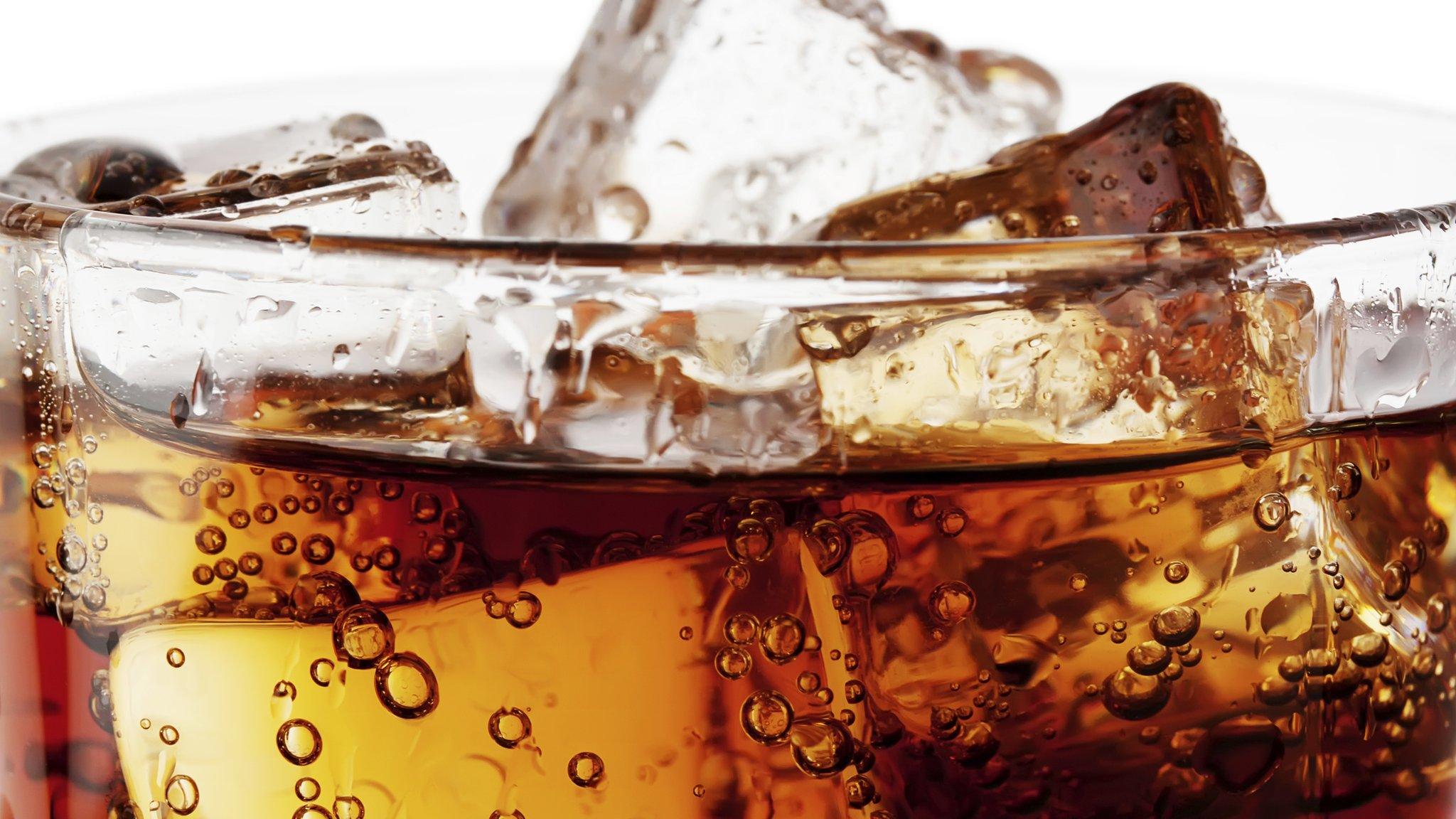Why South Africans will pay 'sin tax' for fizzy drinks
- Published
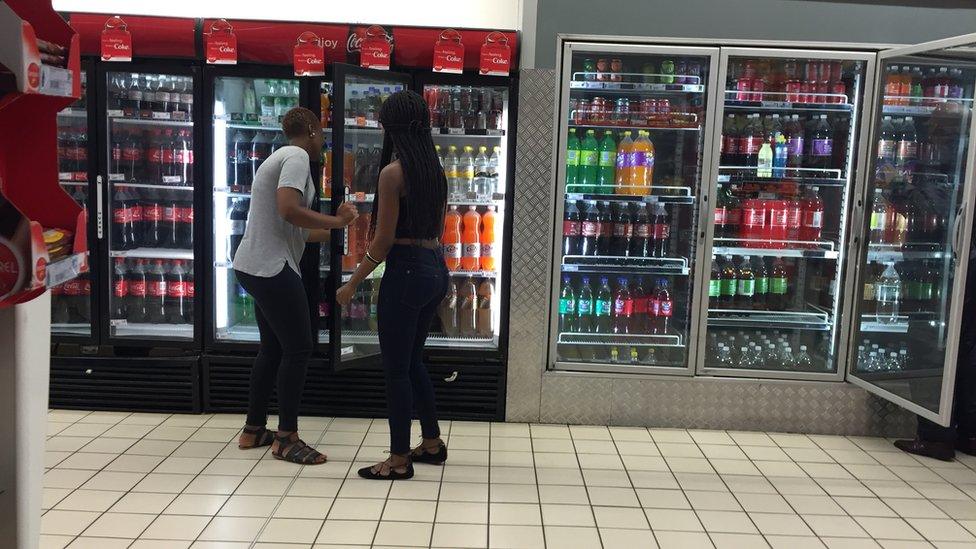
Fizzy drinks are hugely popular in South Africa, with a variety of international and local drinks to chose from
South Africa has joined the battle against sugar, becoming the first African country to plan a tax on drinks loaded with the sweet stuff.
That could hurt many here, for whom a supermarket trip is not complete without stocking up on their beloved garish fizzy liquid.
But University of Johannesburg third-year students Nomzamo and Precious tell me they are not about to give up their sugary treats.
"I buy fizzy drinks because I love the taste," says 21-year-old Nomzamo as she surveys her options in a packed supermarket fridge.
"It's also convenient and I don't have to worry about preparing something to drink if I have people coming over."

The sugar business employs hundreds of thousands of people across Africa
Precious, whose hand seems to be drawn to the bright orange Fanta, says the extra tax planned for next year will not put her off.
"We'll still buy them when the prices increase - we might buy less though but I don't see us stopping," she says.
"I think as long as you don't overdo it, there is nothing wrong with any one type of food."
At an average of less than $0.50c (£0.36) for a 330ml can, sweetened drinks are affordable for the vast majority, and have become a regular feature of the weekly diet.
And that is part of the problem.
Finance Minister Pravin Gordhan introduced the tax on everything from carbonated soft drinks to flavoured water in February's budget speech, partly as a way to tackle the country's bulging budget deficit, but also to deal with people's bulging waistlines.
South Africa has not been spared as obesity levels have soared around the world in the past couple of decades.
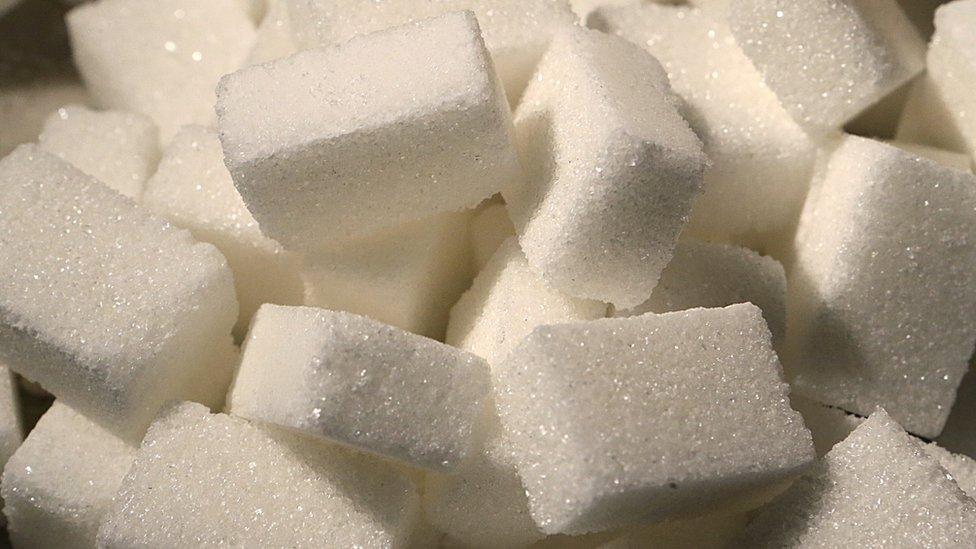
The average South African consumes 17 teaspoons of sugar a day
According to a 2014 World Health Organization (WHO) estimate, one in four South Africans are obese, external.
A 2013 study by the Human Sciences Research Council in Johannesburg pointed the finger at sugar as being one of the possible culprits, saying that one in five South Africans consume an excessive amount of sugar, external.
The average South African, according to the results from a survey of 25,000 people, now have 17 teaspoons of sugar a day.
And although not the sole culprit, high sugar consumption has been linked to the development of type 2 diabetes and cardiovascular diseases, which all put a strain on the publicly-funded health system.
South Africa's sugar intake may not be as high as Mexico, 35 teaspoons a day, or the US, 40 teaspoons a day, but it is a cause for concern as the WHO recommends no more than 10 teaspoons be eaten in a day.
Taking on giants
Despite the aim for this new "sin tax", some are sceptical about whether it is the right way to tackle the problem.
"I think it should be up to each person to regulate their sugar intake. I personally know not to drink sweetened juice every day if I want to stay healthy," says Lindi, from the south of Johannesburg.
"The government shouldn't take away people's rights to choose. They should instead look at making healthy food cheaper and not punish people for their choice," her husband adds.
That is a line of attack chosen by the opposition Democratic Alliance.
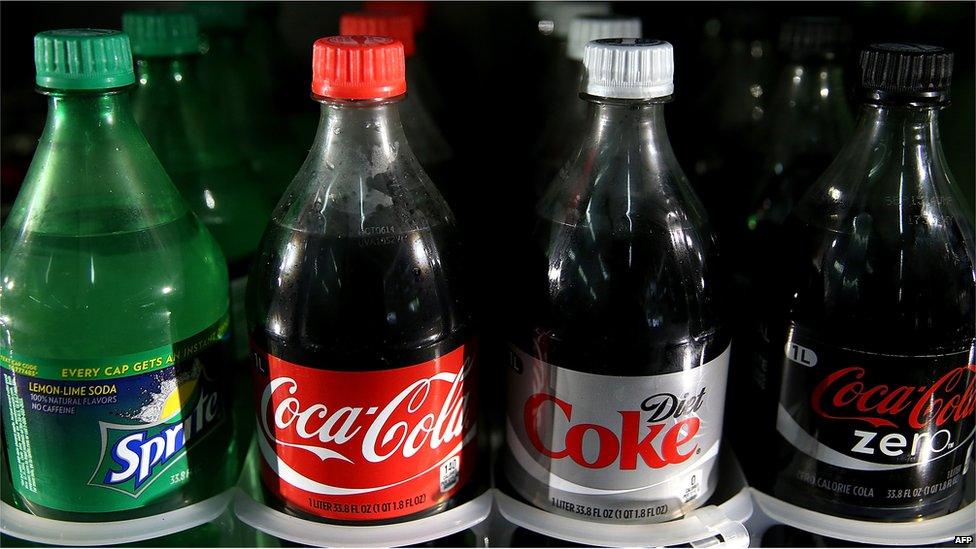
Beverage companies have raised concerns about the new sugar tax
Perhaps more significantly, drinks manufacturers are likely to mount a campaign against the tax.
The Beverage Association of South Africa (BevSA) , externalhas questioned why the government is targeting just drinks rather than the entire processed food industry.
It argues that one food item cannot be blamed for the country's obesity issues.
But tax expert Kyle Mandy from the accounting firm PwC says that the lesson from Mexico - which has also gone down the sugar tax route - is that corporate opposition can be faced down.

Average daily sugar intake by teaspoons
South Africa: 17
Mexico: 35
United States: 40
Egypt 21
UK 23

Does it work?
On the key question of whether the tax actually works, Mr Mandy says that in Mexico it "has been relatively effective in reducing the consumption of sugary beverages".
Some argue that the tax could be a blow to poor South Africans who cannot afford better quality goods. But the tax expert says the health benefits need to be weighed against the costs.
"It does work, provided it is done well. South Africa will now need to determine the level at which they introduce the tax, it cannot be too low or too high," Mr Mandy says.
He warns though that the country would need to adopt a comprehensive approach beyond just taxing sugary drinks.
"It needs to be a package of measures looking at educational campaigns about adopting a healthy lifestyle, access to healthy options for the average South African and regulations on better food labelling," he tells me.
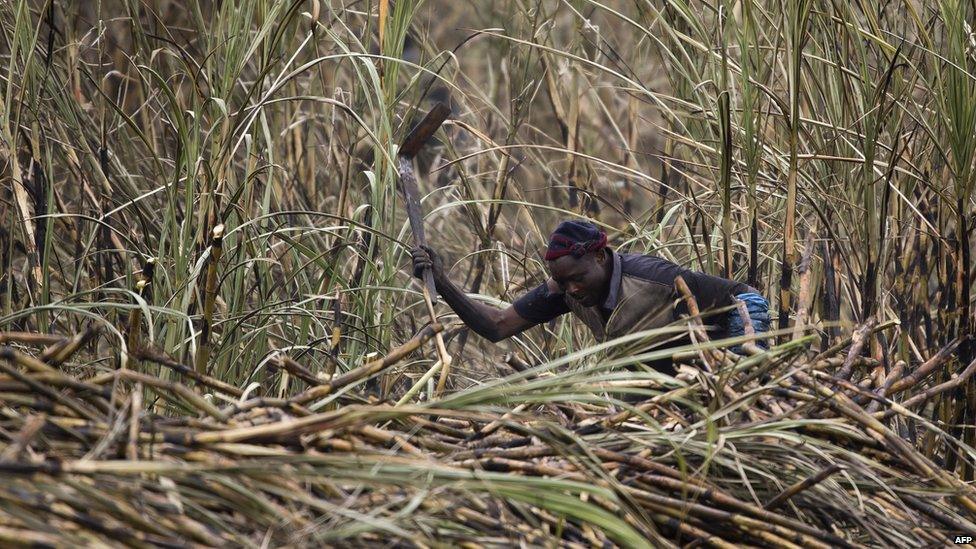
South Africa has many sugar cane farms
Policy makers will need to carefully navigate some tricky waters before the tax comes into effect in April 2017, one of which is to be sure that the tax will not affect the industry to such an extent that it needs to shed jobs.
The South African Sugar Association says that one million people depend on the sugar industry for a living and it directly employs 79,000 people in the country.
But it seems many agree in principle that the sugar tax is a good place to start to tackle some of the country's health problems.
Water anyone?
- Published2 February 2016
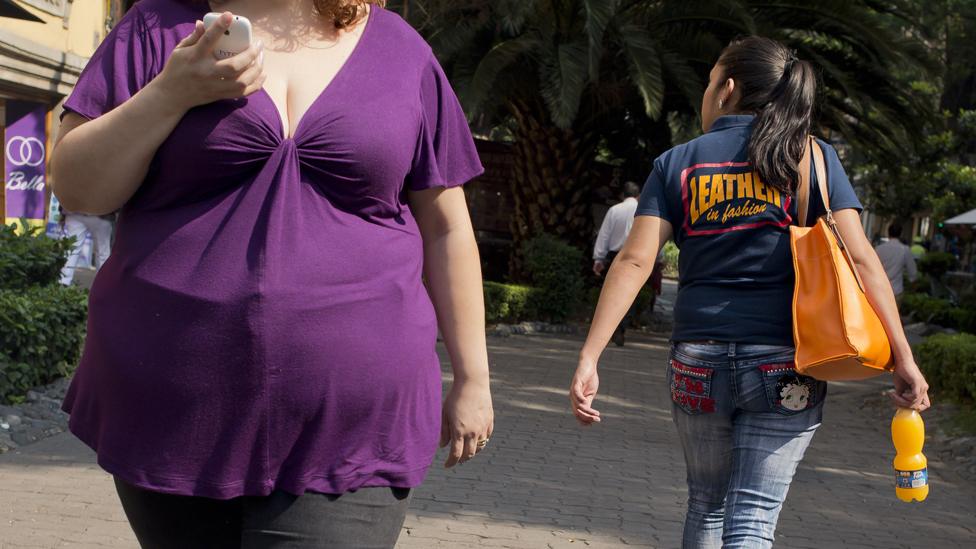
- Published19 February 2016
